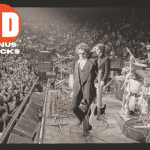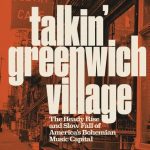Singer-Songwriter Leonard Cohen has died today at 82. He leaves us with a best-selling new release, You Want It Darker, and one of the most prolific legacies of song ever conceived. In fact, his canon is so important in its scope and depth, a tribute album was produced for him named after one of his own compositions, Tower of Song.
Cohen was a spiritual-leaning writer whose tenor voice of his youth dropped over the decades, falling into a haunting, hypnotic bass rasp and whisper. His songs were like epic stories and his melodies were like suggestions as he seductively whispered out classic compositions like “Hallelujah,” “Suzanne,” and “Dance Me to the End of Love.”
His final albums included 10 New Songs, Dear Heather, Old Ideas, and Popular Problems. Like Picasso, Cohen never stopped creating new work. It was in his blood and the sum-total of his being.
Unlike many songwriters of his generation, Cohen never shunned religion. He embraced Zen Buddhism, becoming a priest later in his life. But his songs never eschewed other points of view, as he freely used Jewish and Christian imagery along with his Buddhist vision.
Most important to our culture of music, Cohen is one of a handful of artists who raised songwriting from its residence on Tin Pan Alley into the realm of art and literature. During a recent interview in The New Yorker magazine, he said, ““I’ve got some work to do. … Take care of business. I am ready to die. I hope it’s not too uncomfortable. That’s about it for me.”
Later, during an L.A. press conference, he took back those words as and, as Billboard reported, clarified: “I think I was exaggerating. I’ve always been into self-dramatization. I intend to live forever.” He added that he would actually like to live to 120, though that was not to be.
That Cohen leaves us in the trail of his new album — with two more planned — brings a bittersweet departure to his passing, not unlike David Bowie’s passing earlier this year.
Cohen was arguably one of the few contemporary songwriters who drew very little influence from Bob Dylan, instead forging a legacy of his own. His was music on his own terms, without convention or precedence. His was a voice of a poet, a mystic thinker, and a lyricist who dared to fuse his songs with original visions and entirely new templates that influenced countless artists.
For those who have traveled with his work for these last decades, the loss is profound. For the world-at-large, a great light has left us, but one we could all do well to emulate or perhaps illuminate. There was a spirit of creativity to all of Cohen’s songs. They were, at times, lyrical epics, confessions, poetic adventures, vulnerable stories, and Haikus of passion. His example of kindness and humility, and his ability to listen his innermost heart — and impart it to us — will be missed the most by friends, family, and his fellow musicians.
No cause of death was cited today. A memorial is pending. His family asks for privacy to allow them time to grieve.




